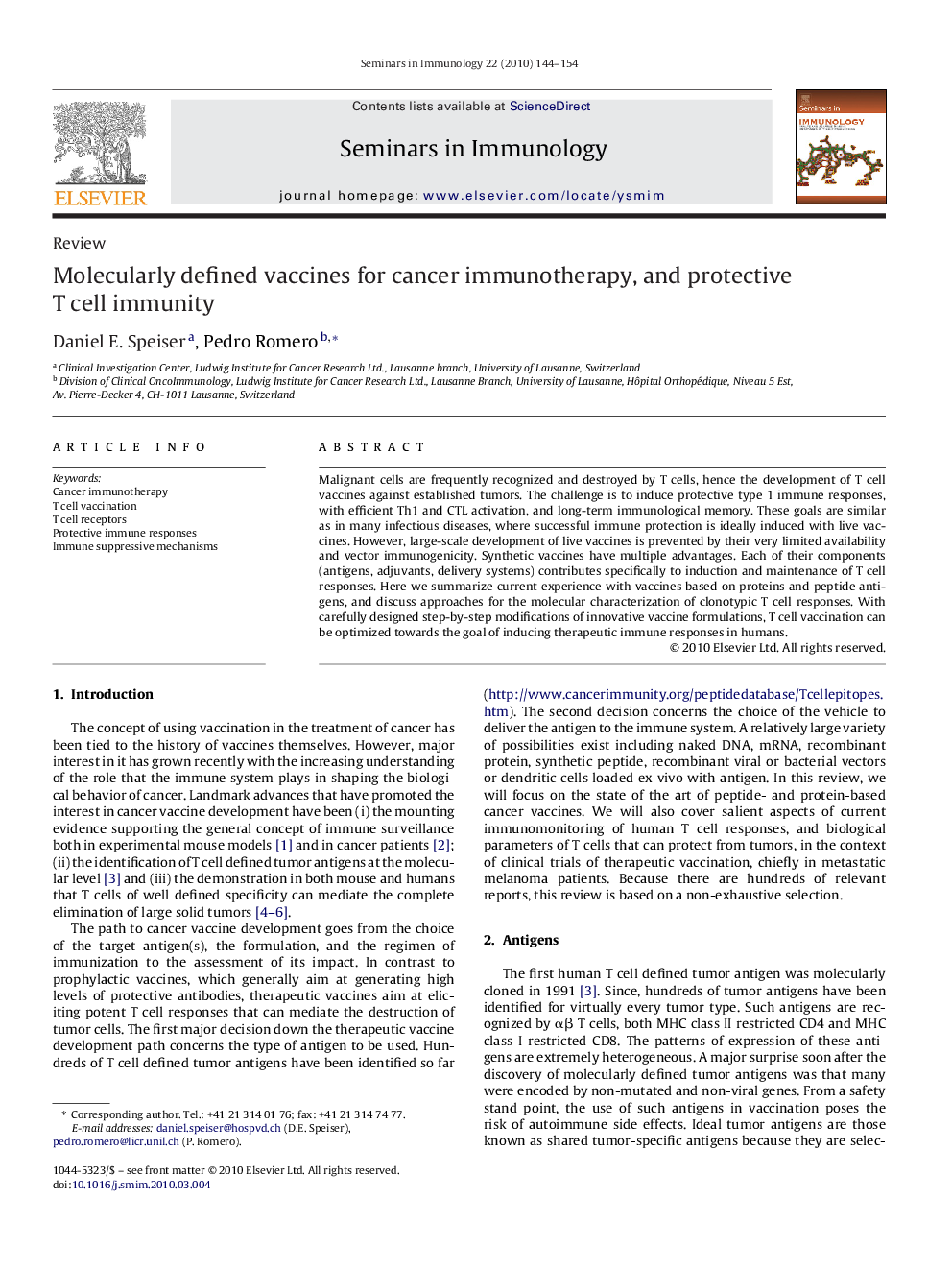| Article ID | Journal | Published Year | Pages | File Type |
|---|---|---|---|---|
| 3391632 | Seminars in Immunology | 2010 | 11 Pages |
Malignant cells are frequently recognized and destroyed by T cells, hence the development of T cell vaccines against established tumors. The challenge is to induce protective type 1 immune responses, with efficient Th1 and CTL activation, and long-term immunological memory. These goals are similar as in many infectious diseases, where successful immune protection is ideally induced with live vaccines. However, large-scale development of live vaccines is prevented by their very limited availability and vector immunogenicity. Synthetic vaccines have multiple advantages. Each of their components (antigens, adjuvants, delivery systems) contributes specifically to induction and maintenance of T cell responses. Here we summarize current experience with vaccines based on proteins and peptide antigens, and discuss approaches for the molecular characterization of clonotypic T cell responses. With carefully designed step-by-step modifications of innovative vaccine formulations, T cell vaccination can be optimized towards the goal of inducing therapeutic immune responses in humans.
